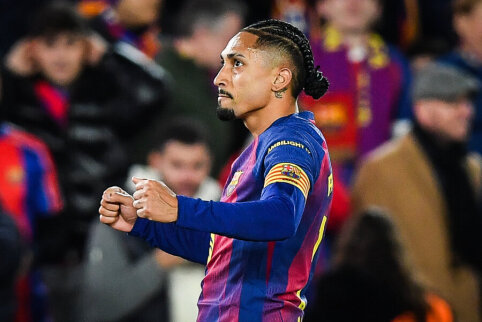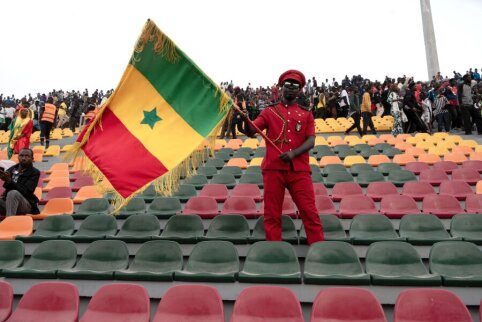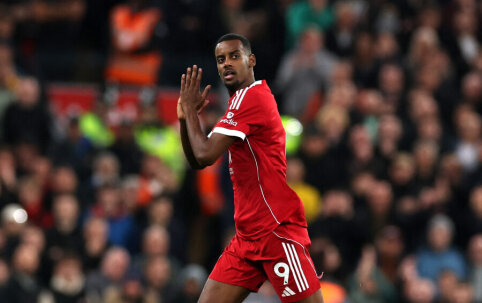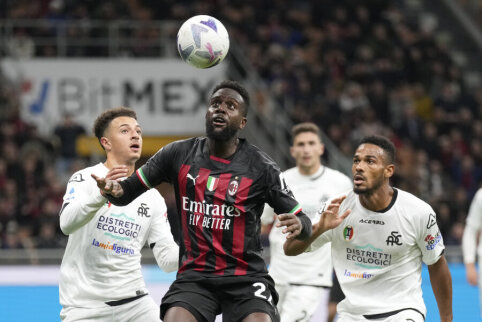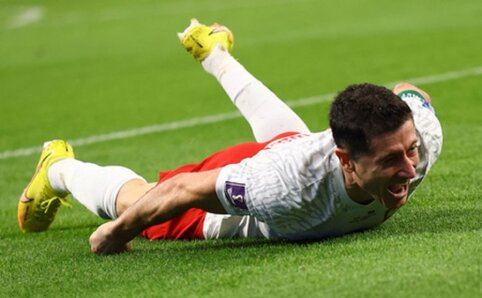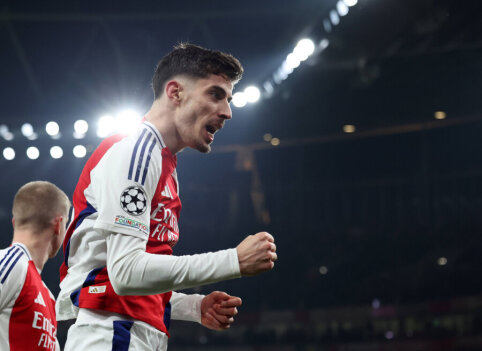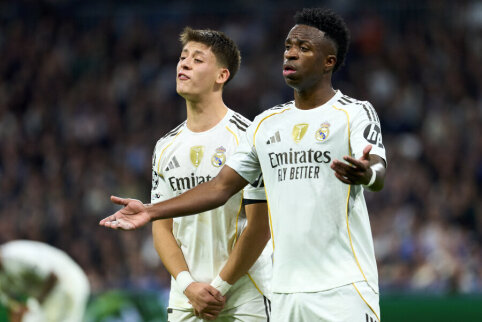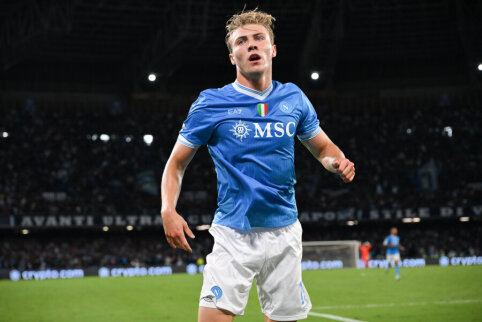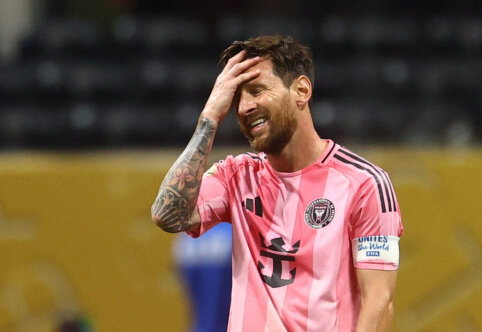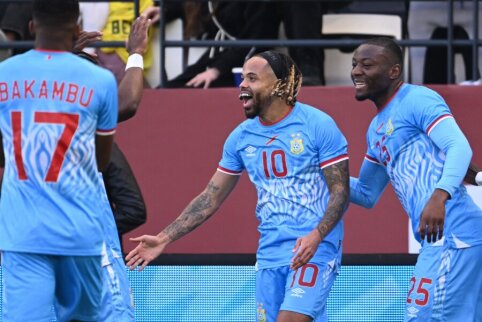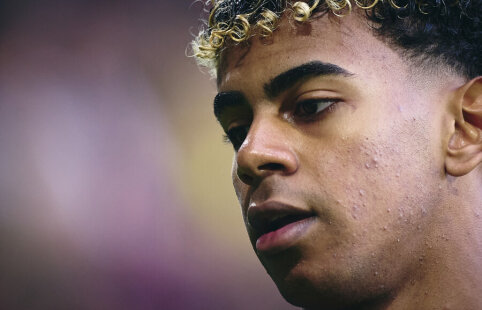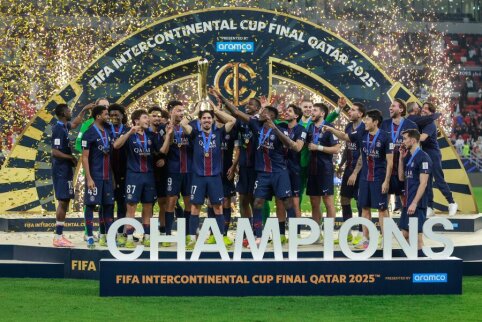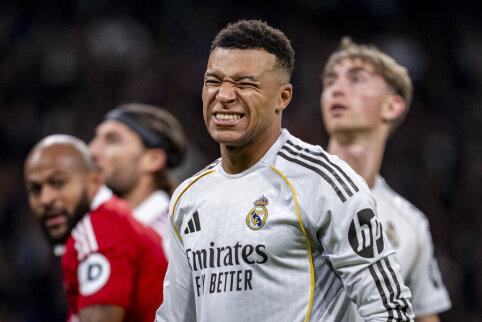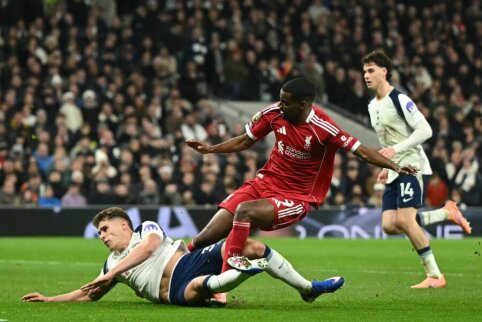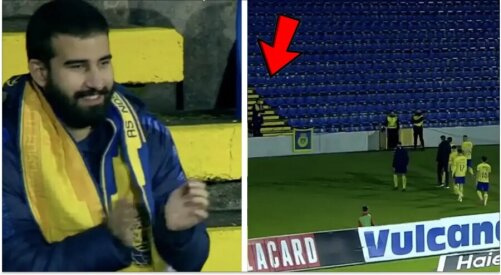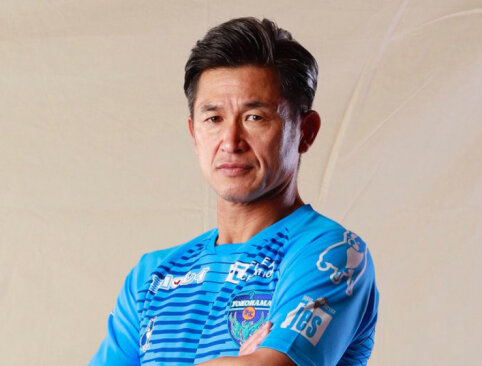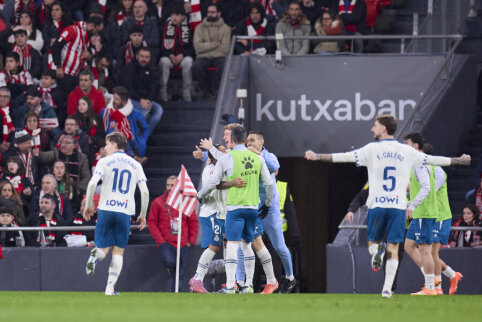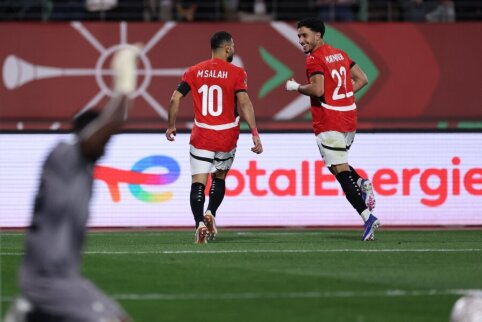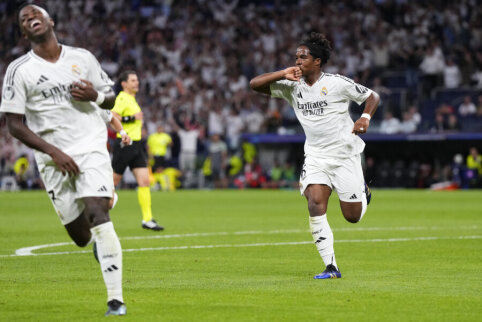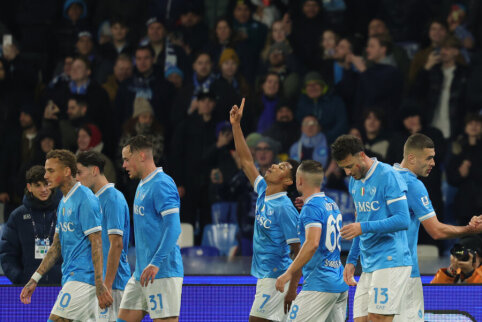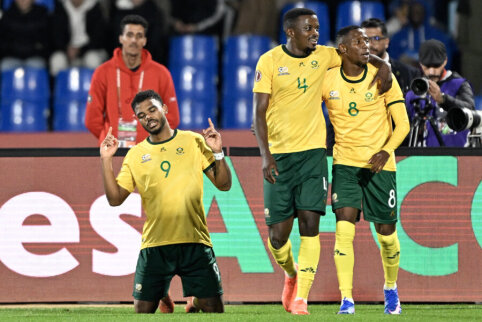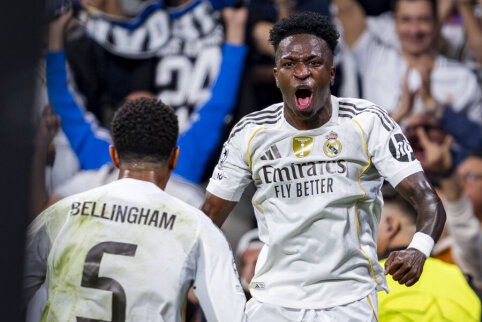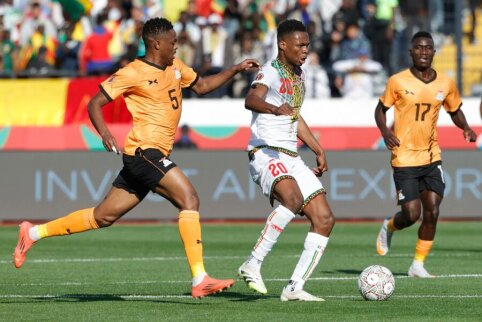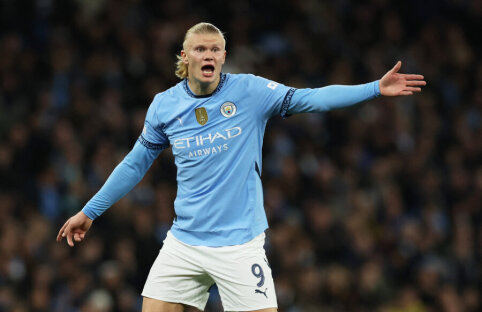 © EuroFootball.com
© EuroFootball.com
We introduce a team, having quite a lot of sympathy in Lithuania. Identifying favorites in modern football is a bit foolish and meaningless. If the bronze medalist of the last World Cup loses to a Latvian team in the knockout rounds without ever participating in the European Championships, and South Korea consecutively defeats Italy and Spain, you understand - there are no favorites and there can´t be any.
History
Representatives of Russian football have been participating in the European Championships since the very first tournament in 1960. However, until the well-known events between the 1998 and 1992 championships, the Russians played under the flag of the USSR and shared team places with representatives of other, now independent, states that were part of the USSR. Therefore, each of the 15 republics can now try to reach the final stage of the European Championship independently. Until this year, they satisfied only with chances, and only in 2003 did the Latvian national team become the first team from the former Soviet bloc to reach the European Championship.
The best performances of the Russian team in the European Championship are in the distant Soviet past. The Soviet Union team consistently reached the final stages in the first four tournaments, which then started at the semi-final stage. So, places were taken no lower than fourth. In 1960, a triumph was achieved, and the European Cup was won in France. Four years later, they participated in the final. After the tournament became the European Championship, they finished 4th and 2nd in 1968 and 1972, respectively.
It should be noted that the system of the first tournaments significantly differed from what we are used to seeing today. If in the first championship in 1960 a total of 17 countries participated, today there are more than 50 participants, and only the top 16 reach the final stage. In the 1980s, the tournament began to expand, and the USSR team retreated into the shadows. In 1988, it played in the final for the last time, and it ceased to exist by the 1992 championship.
Over those slightly more than ten years of history created by the USSR team replaced by the Russian team, six people led it. Formally, seven, but one of them - Mikhail Gershkovich - did not lead the team in any match. It is noteworthy that only one of the coaches, Oleg Romantsev, managed to play in two qualifying cycles. And not in a row, but with a break, during which two other coaches led.
The candidacy of the first Russian coach, Pavel Sadyrin, was not even considered. At that time, in 1992, he was at the peak of his glory, winning the champion's title with. He worked with the national team until the end of the 1994 World Cup, but due to scandals, he was forced to withdraw from the team. He was replaced by Oleg Romantsev, who with his team crushed everyone in the Russian championship. But due to scandals not related to the game, he left the national team after Euro-96 in England. There was no suitable replacement for Romantsev - the new coach became the "eternally second" Boris Ignatiev. He failed to lead the team to the 1998 World Cup, and then Anatoly Byshovsky appeared on the scene - the last coach of the USSR national team and the only strategist of the CIS team, which existed from January to June 1992. But he also did not succeed in the Euro 2000 qualifiers. In the first three matches - with Ukraine away, with world champions the French at home, and with Iceland away, the Russian national team did not earn a single point. In the cold winter of 1998/99, new elections for the national team coach were held. After defeating Valery Gazzaev and Yuri Semin, Oleg Romantsev celebrated victory. He tried to take the Russian national team out of the "hole" in which the previous coach had plunged it. The team won six games in a row and had every chance of reaching Euro-2000. In the decisive match, they needed to defeat the Ukrainian team. Russia was ahead, but due to the goalkeeper Aleksandr Filimonov's foolish mistakes, they conceded a goal three minutes before the end of the match. The final score - 1:1 allowed the French to win the group matches, and Ukraine took second place, later losing to Slovenia in the knockout rounds.
Successfully overcoming the qualification cycle for the 2002 World Cup, the team led by Oleg Romantsev failed to achieve the minimum goal in the World Cup final. After winning against a very weak Tunisian team, Romantsev's men lost to the hosts, the Japanese and Belgians, thus missing out on a place in the quarterfinals.
Naturally, Romantsev soon left the team, which was entrusted to Valery Gazzaev until the new year. Combining the positions of the national team and "CSKA" senior strategists, Gazzaev created a national team mainly based on his proteges - the army soldiers. And it should be noted, initially he did quite well. Russia started the qualification cycle with a productive victory against Ireland (4:2) and convincing wins against Albania (4:1).
However, something started to falter in the game. Away matches against Georgia (0:1) and Albania (1:3) became a real nightmare, not bringing Russia any points. Two defeats after two victories raised doubts about Russia's entry into the European Championship. There was a friendly match with the Israeli team, which the Russians lost, and Gazzaev resigned. The reins of the team were taken over by Georgy Yartsev. Having no other work, Yartsev managed to lead Russia to the knockout rounds and later win a two-match encounter with Wales.
Euro-2004 will be the ninth continental championship for the Russian national team. Who has the best chances of going to Portugal?
Before the recent World Cup, the goalkeeper position didn't raise any questions. If two years ago, the excellent game of Ruslan Nigmatullin deserved the status of the main national team star, now the undisputed number one in the national team is another Moscow goalkeeper - Sergei Ovchinnikov. With the Russian national team, Ovchinnikov played throughout the entire qualifying tournament and did not give rise to any doubts about his high qualification. Even in the worst moments of the team, he avoided criticism for his actions.
However, things are not so good for the candidates for the second goalkeeper position. Viacheslav Malafeev, who replaced Ovchinnikov in the away matches against Wales, was seriously considered for this position. However, at the end of February, he dropped out of the lineup for an indefinite period due to a hand injury.
This injury added headache to the head coach Georgy Yartsev. The CSKA goalkeeper Igor Akinfeev undoubtedly has the talent, but he is very young, too young to withstand the tension of international competitions. So, during the remaining weeks, it will still be considered who will be the second qualified goalkeeper: from the army goalkeeper Mandrykin who withdrew to the shadow, or the return of Nigmatullin to "Lokomotiv" and even Alexander Filimonov, whose career is now continuing at the "Torpedo-Metallurg" club.
As for the defensive line, this is the first time in recent years that there is such a good situation that defenders can help the attacking line stably.
As for the forward position - someone has not changed for centuries, there are no forwards. However, in five matches, Bulykin scored four goals for the national team. And in all home matches in the qualifying stage, even in the most unfavorable conditions, the Russian team scored at least three goals to any opponent. But, of course, there are no normal forwards in the team...
Or - "defenders after a hundred years." Of course, after a hundred years. They now graduate from sports schools. It is understandable that Viktor Onopko suffers from alopecia, after half an hour of rushing, he looks, let's say, not worth a million "bucks." But the coaching staff constantly monitors him, and none of his representatives is asked to follow the most experienced team player and pick the sand from his shoes.
Finally - "the coach got a job through acquaintances." Of course, through acquaintances. In Russia, both the national team and tickets to the stadium are distributed through acquaintances. That´s the way they do it. When Jarcev was appointed national team coach - ten days before crucial matches, other kamikazes did not manifest themselves among Russian or foreign specialists.
Someone managed to score in five home matches and three points needed to beat the Ukrainian team in crucial matches. Vadim Yevseyev brought victory against Wales in the playoffs - and he is the first hero now, and all others seem to have disappeared.
The season is long, there are many matches - each of the players must show themselves in some stage of the season as an individual, because otherwise, not much will come of it. Yes, there was an example that one player dragged the Italian national team. However, he couldn't drag the "squadra azzura" to anything. Because when so much depends on just one player, he can keep up to a certain limit, and then starts making mistakes in simple situations, similar to the one in which Baggio stumbled in the 1994 final.
But there are also reverse examples. Take the French national team, the recently crowned world champion and still reigning European champion. The stars for the French are not just at every line, but in every position.
In the Russian team, there are heroes galore. The midfielder Semak scored two goals against Albania - he is the hero. And on the next day, he is no longer in the team. Defender Ignashevich scored three goals in away matches against three - he is a star. Against a hat-trick with Switzerland, Dmitry Bulykin becomes the main hero, and others seem to have disappeared. Vadim Yevseyev brought victory in the playoffs against Wales - and now he is the first hero, and all the others are gone.
The season is long; everyone can score. In such cases, the understanding of the term "stars" takes on a different aspect.
A footballer, whose name is associated with success and global recognition. A footballer reflecting certainty in the final result. A footballer whose presence in the lineup means a certain level of play, without which the team cannot perform well. That's what a star is.
And there is such a person in the Russian team. He knows when to play defensively, hold the ball, and watch the clock when to charge headfirst into an attack. He can orient himself when to smile at the referee and when to express his opinion. He feels when to demonstratively back off and ask the opponent for a card, and when it is possible to cling to the opponent and threaten him for his actions that could earn him a yellow card. All this is an invaluable value. He is the emperor on the field. He is Alexander Mostovoy.
He plays for the team more withdrawn than in his club. But this is not because he is already "old" or because the national team coaches "tamed" him. Simply Mostovoy is a very versatile player. All other team players can slip up in individual matches, while he remains a quality player in his positions. Mostovoy plays wherever the team needs him most at a given moment. And each time he does so rightfully earning all the praise.
Weak Link
In the film "Mortal Kombat" by Paul Anderson, based on the popular computer game, a universal recipe for victory is presented. To achieve it, the hero must defeat his greatest enemy, defeat his greatest fear, and finally overcome himself.
What prospects await the Russian national team in these aspects?
The biggest enemy of the Russians - English referee Graham Poll, who appointed a very questionable penalty kick against Russia in the 2002 World Cup qualifiers against Slovenia, will not go to Euro-2004, as only Michael Riley will represent England among the referees in Portugal.
The biggest fear of Russia was and is the Brazilian national team. But they will not be in the European Championship due to territorial aspects.
So, only defeating themselves remains. But will they succeed, this is where the biggest doubts arise. Such metaphysical factors as ambitions, belief in their success, and sporting audacity have always been the biggest problems of the Russian national team.
And when there is no self-belief, problems can always be found that will hinder the team from achieving the desired result in a major tournament. Something akin to female complexes...
For example - "there are no forwards in the team." Of course, there aren't. Where to find them in a country traditionally poor in attacking talent... However, Dmitry Bulykin scored five goals for the national team in five matches. And in all home matches in the qualification stage, even in the most unfavorable conditions, the Russian team scored at least three goals to any opponent. But, of course, there are no normal forwards in the team...
Or - "defenders after a hundred years." Of course, after a hundred years. They are now released from sports schools. It is understandable that Viktor Onopko suffers from alopecia, after half an hour of rushing, he looked, let´s say, not worth a million "bucks." But the coaching staff constantly monitors him, and still not one of his representatives has been asked to pick the sand off him.
Finally - "the coach got a job through acquaintances." Of course, through acquaintances. In Russia, both the national team and tickets to the stadium are distributed through acquaintances. That's the way it is. When Jarcev was appointed national team coach - ten days before crucial matches, other kamikazes did not manifest themselves among Russian or foreign specialists.
Someone managed to score in five home matches and three points needed to beat the Ukrainian team in crucial matches. Vadim Yevseyev brought victory against Wales in the playoffs - and he is the first hero now, and all others seem to have disappeared.
The season is long; everyone can score. In such cases, the understanding of the term "stars" takes on a different aspect.
Marat Izmailov is a classic hope-inspiring player. With a touch or two, he can change the outcome of every match. And at the same time, he may not do it: he is a classic attacking player, hoping for results in every game is stupid.
Marat was considered a hope in Japan-Korea. The hope is now. The question arises: has nothing changed over two years? Indeed, a change has taken place. First of all, Marat himself has changed. He won his first champion title, experienced the first downturn in his career. Moved into the shadows, both in the national team and in his club, and returned to the limelight in the spring of 2004.
Marat is still young, not all aspects of the game go well for him. It is easier to take the ball away from him than, for example, from Yegor Titov, who has a greater chance of making an inaccurate pass. But if he makes a mistake, Izmailov will surely return to defense to work off his mistake. This is his most valuable distinguishing feature from other attackers.
His first significant event in Izmailov's career took place in November 1999. Then, while still a student of the Torpedo Moscow football school, he became the Russian champion among 1982 boys' teams. In the same championship, Izmailov was recognized as the best forward. Carried out in 2000, Izmailov is released from Torpedo and signs a contract with Lokomotiv. In the very first year, Lokomotiv includes him in the application for the Russian championship, but Izmailov didn't appear in official matches that season. In October, Izmailov appears in the starting lineup, scoring his first, unstoppable goal in the match against Zenit, won by a score of 5:1. The autumn of 2001 and the spring pass under the sign of Izmailov and his perfect corner kicks.
The debut of Izmailov in the national team squad took place on August 15. And then he didn't miss any matches until the trip to Korea and Japan. In September, Izmailov made his debut in the Champions League, in October he scored his first goal in the tournament when Lokomotiv celebrated victory in a 5:1 match. The results of 2001 sent Izmailov's fans into euphoria. He, recognized as the second-best player of the championship after Titov, receives various incredible awards and nominations, including "Best Attacking Midfielder," "Most Valuable Player," and "Season's Hope."
In 2002, Izmailov entered a dark period. Unsuccessful performance at the World Championships and subsequent injuries knocked him out for a long time. After receiving the first injury at the end of July, he struggled to return to the lineup throughout August. In September, he resumed training but only to suffer a broken metatarsal and ruled out until the end of the season.
Last season was spent reclaiming lost positions. Izmailov scored five goals - one less than in 2001. At the same time, he improved his record of assists. In September, Yartsev returned Izmailov to the national team. Initially starting from the bench, and later in the starting lineup.
Finally, in 2004, an astonishingly beautiful goal towards the Lokomotiv goal allowed them to celebrate victory at home. According to all signs, Euro-2004 should be a launching pad for Izmailov to reach a new level.
